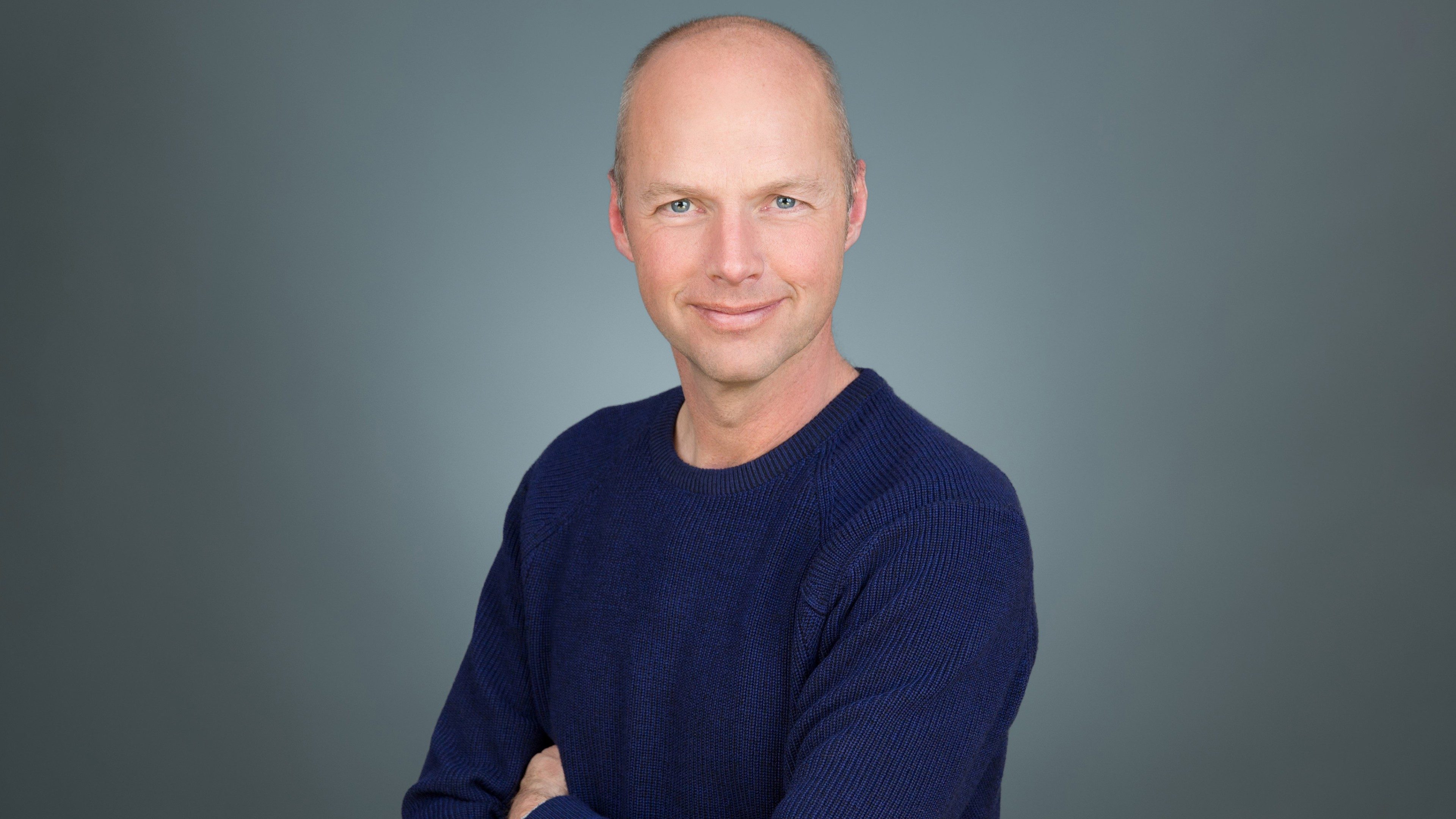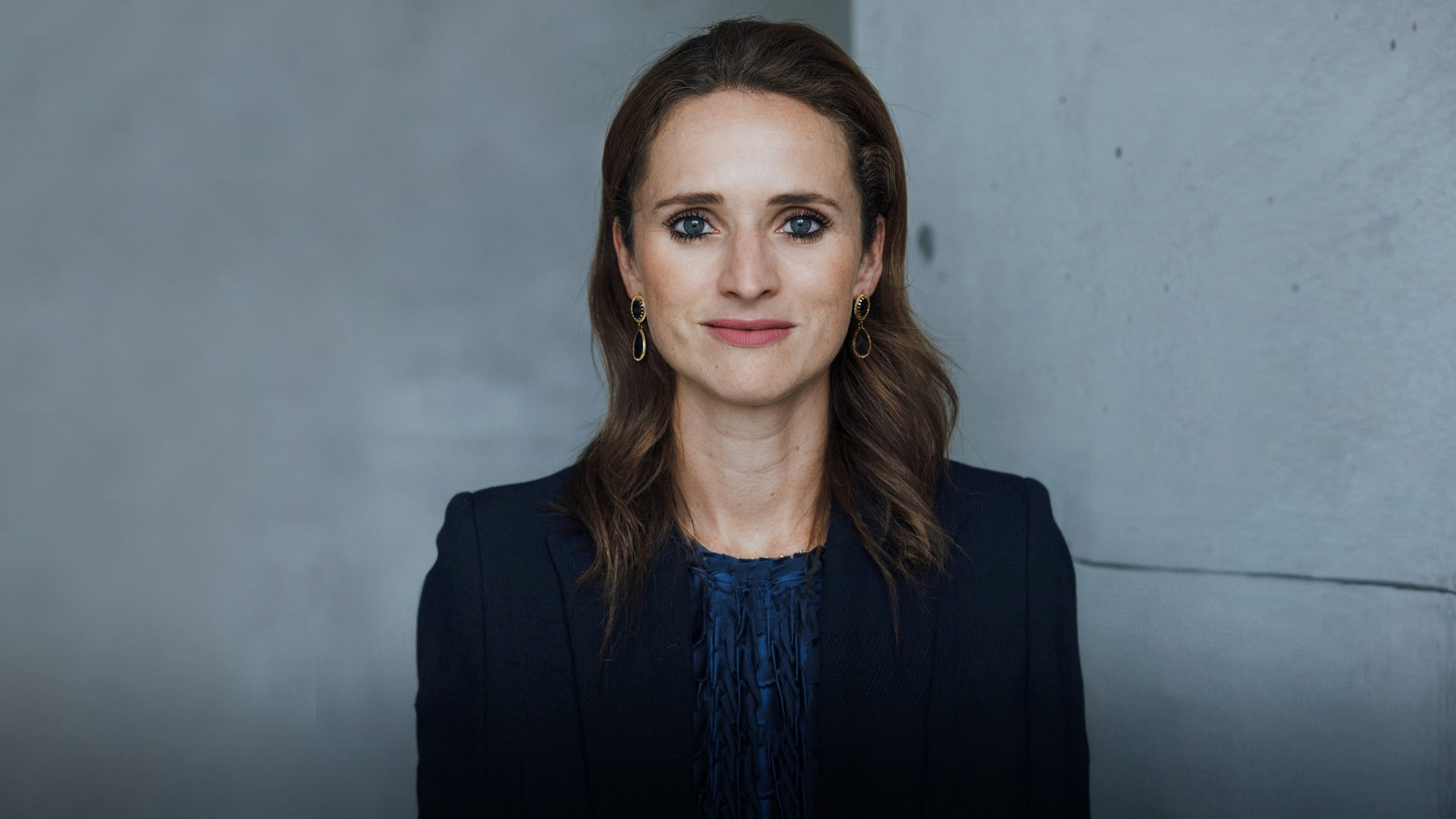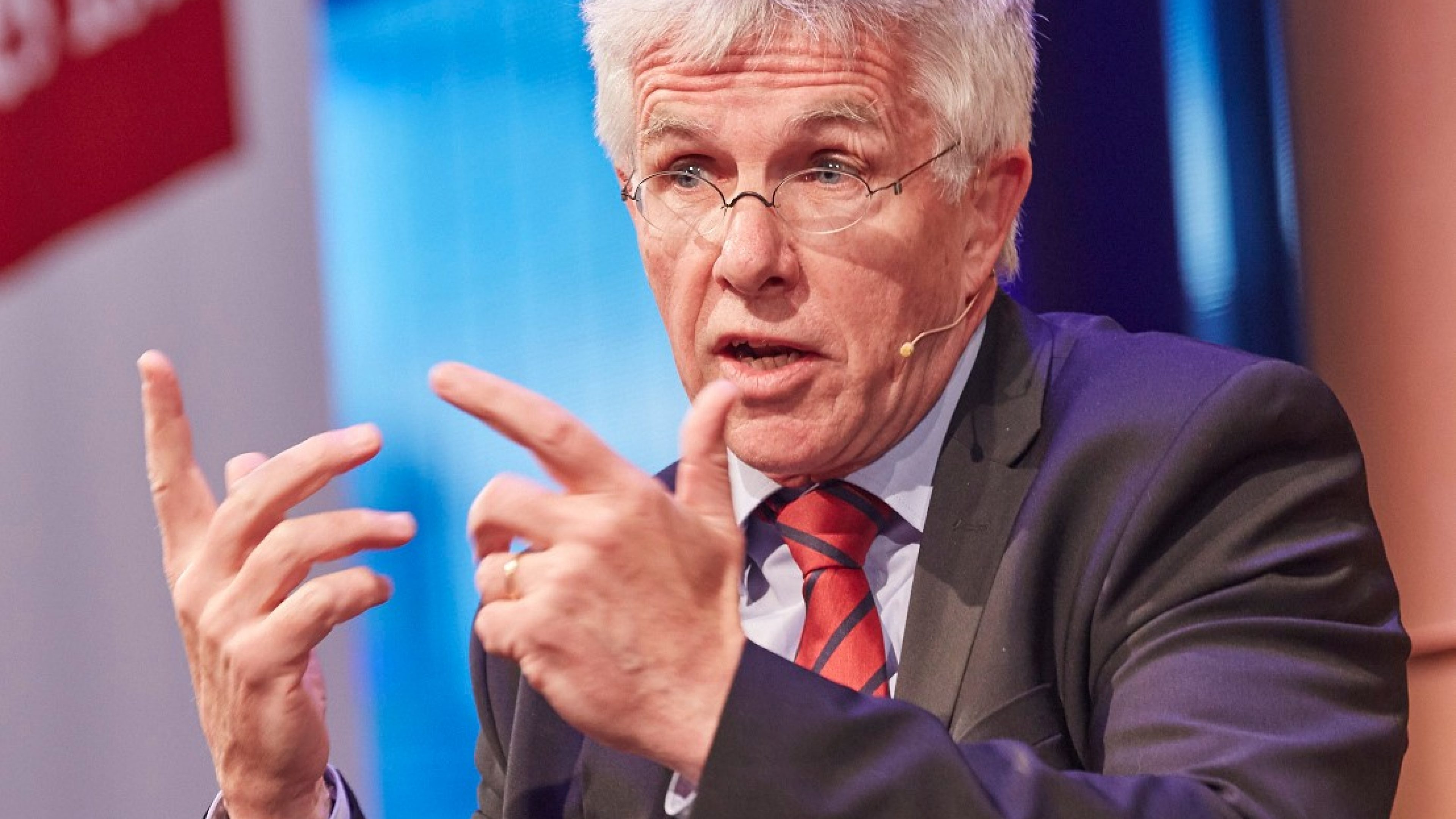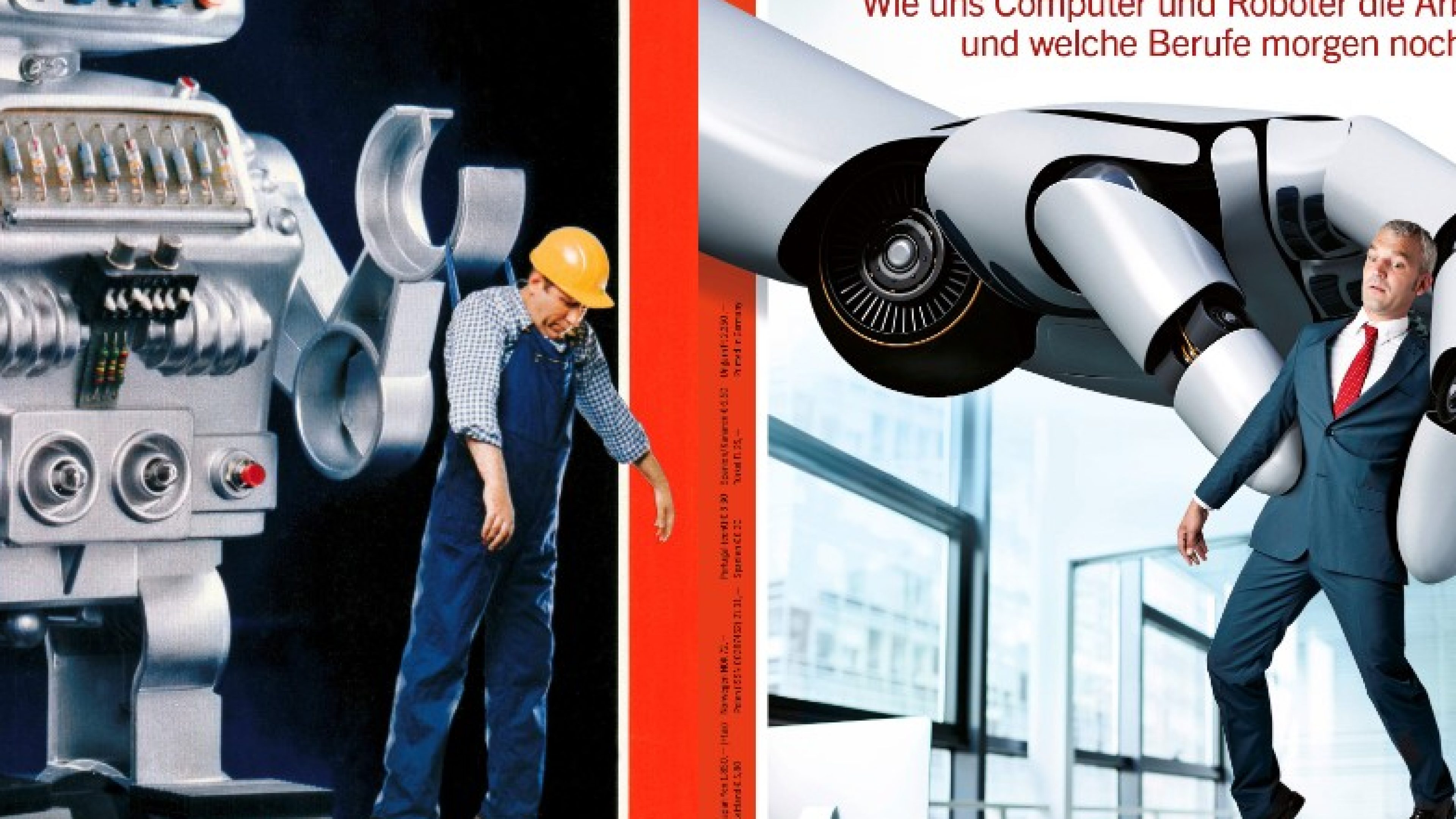Sebastian Thrun has developed self-driving cars and digital glasses for Google, and has recently been designing electric air taxis. The German high-tech visionary is convinced that artificial intelligence improves the world and makes us more self-determined.
You are one of the pioneers of artificial intelligence (AI). Back in 2005, your research team at Stanford won the first race for autonomous cars through the Nevada desert. What fascinates you about making machines smarter?
First, I believe artificial intelligence (AI) can help humanity solve big and important problems. Second, I need to put my work in the service of people. Given that we're making so much progress in technology, I asked myself: how can we empower people around the world, not only a few students at expensive universities, to master the new technologies so they can ride the digital wave instead of being swept away in a tsunami? The answer is by putting lectures from American elite universities online free of charge. This resulted in the online learning platform Udacity.
As the founder of Google’s Future Factory X, you have been instrumental in shaping the AI revolution over the past two decades. Do the growing possibilities of intelligent machines threaten human free will and self-determination?
On the contrary, if we look back at the past 150 years, technology has given us much more free will and self-determination. 500 years ago, we had massive numbers of wars and famines. Today we have food in abundance, we have shelter, energy in abundance. Technology has certainly given us more freedom of choice, and that will only increase.
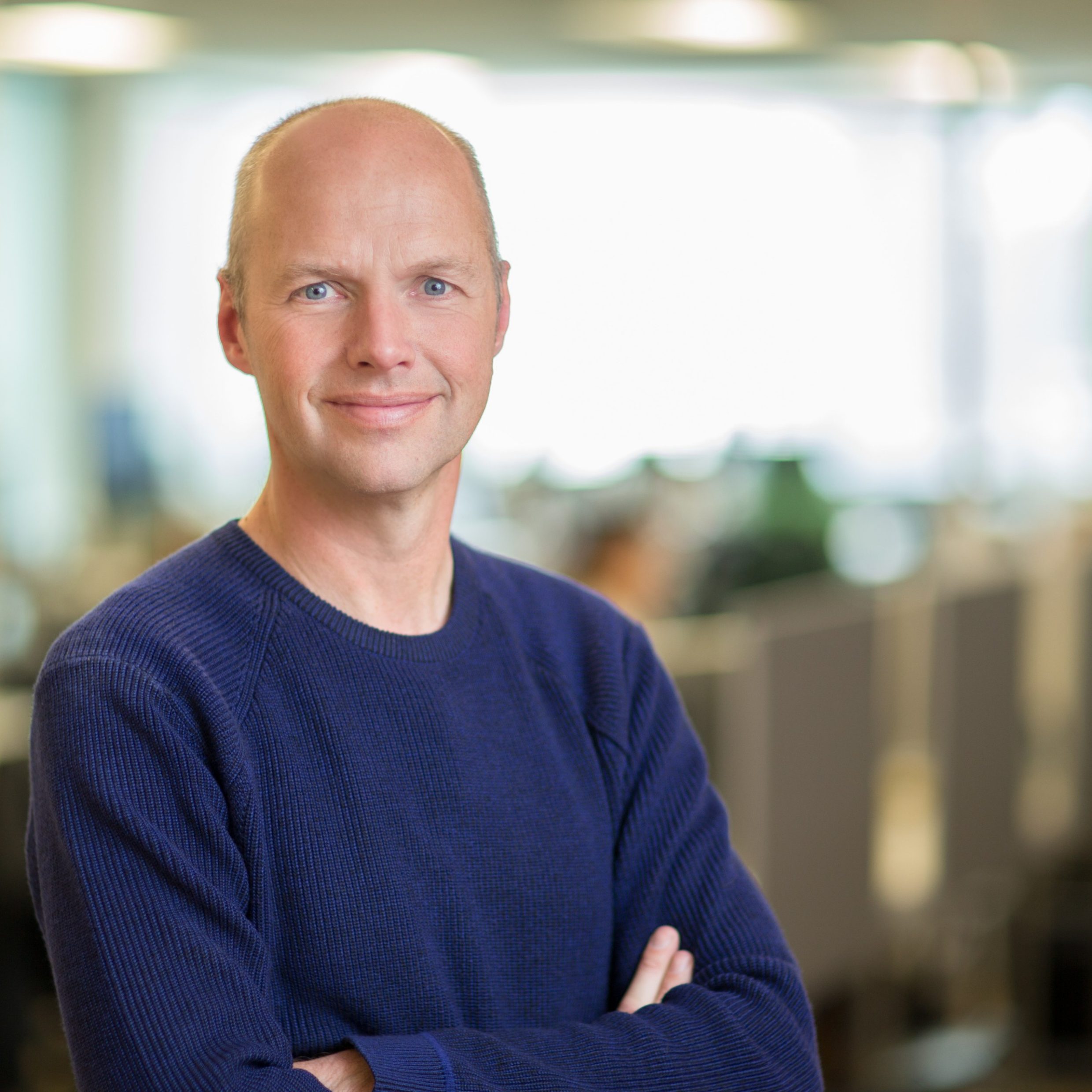
What is AI technology capable of today?
Machine learning is easy to explain. Traditionally, a software engineer had to think about whatever could happen in the world and write the rules on how the computer should react. That's not the way we raise children.
How else?
We teach them by example, and they form their own rules. Look at how children, in their first year of life, discover the pattern that ensures a stable gait through trial and error. This paradigm shift – from rigid rules to learning from examples – has just reached computers. AI systems are therefore able to read skin images, brain scans or X-rays and detect diseases such as cancer with the same accuracy as the most highly trained and highly paid human doctors. That level of image understanding was completely unthinkable even five years ago.
Your latest start-up, Kitty Hawk, co-financed by Google founder Larry Page, wants to build autonomous air taxis. That sounds even more like science fiction than your previous projects.
Our vision is to offer electric air taxis to make things like driving to work safer and more efficient. We’re currently working on a prototype called Heaviside. It’s a quick and quiet single-passenger vehicle that can take off and land in a 10m2 area, and it doesn’t even have to be paved.
How realistic is that? We have been trying in vain for years to enable autonomous driving on our roads.
Autonomy in the air will be with us faster than on the ground. After all, there is no risk of collision in the air and, in fact, we’ve already had a good amount of autonomy in the air for 20 years: on a commercial long-distance flight, the autopilot is switched on for more than 99 percent of the time and can even land an aircraft.
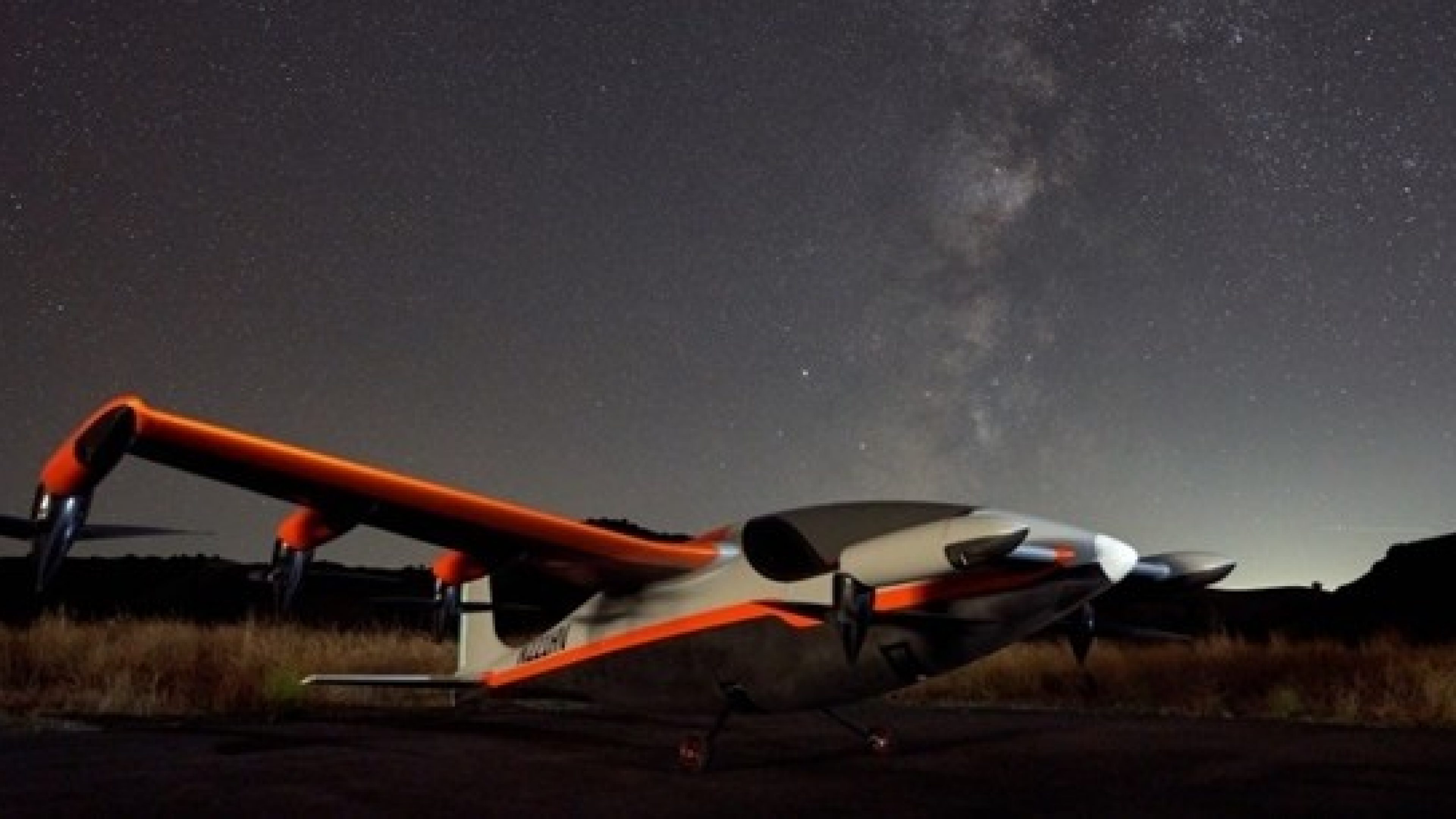
The self-flying electric taxi “Heaviside” by Kitty Hawk.
Let’s return to Earth. People are increasingly worried that robots, automation and AI will replace them. Do you see the danger that humans will become superfluous?
I think people should understand that it is everyone’s obligation to remain informed and educated. But AI will not replace us, it will complement us. It gives people new abilities and a perfect memory. We might recognize every face, we might be able to speak every language. These are fundamentally positive things that improve society. It is similar to how we once improved society with the invention of the steam engine, electricity, the automobile or the telephone. All these things have strengthened society. AI is no exception.
What is your greatest worry about AI?
That society prematurely declares AI a danger and destroys the chances of this technology by rash regulation. If used well, AI could make humanity stronger in many ways. I really hope that we have the patience and the willingness to explore these possibilities. To me, AI is just a tool set, a bit like a shovel. It’s a better shovel, but it's still people who dig for gold with that shovel.
There are plenty of smart people who worry these shovels may eventually call the tune and not the humans…
We’ve long since surrounded ourselves with technologies that are more competent and more powerful than we are in certain domains. No one can run as fast as a car can drive. No one can speak over as far a distance as a mobile phone can reach. So, having technologies that exceed our capabilities in certain dimensions is not new to us. What I think is important is that, ultimately, people stay in charge, and I see no reason why this will change at all, other than maybe in crazy Hollywood science fiction.
What do you think: do we need robot ethics, or rather ethics for robot producers and users?
The latter. We as a society need to think about how we can use this important tool in a responsible way that lines up with our morals. Moreover, systems should not only be efficient, but should also behave in such a way that they do not violate core values, such as the freedom of the individual or the right to informational self-determination. We achieve this, for example, by training programmers to develop systems that guarantee data protection and privacy.
Many technologies are just chipping away at our skills bit by bit because they are so convenient. What if that de-skilling reduces the fullness of the human experience?
When I was a kid, I had to learn spelling. And now my e-mail system helps me spell correctly. So, a machine working on my personal deficiency, which is my inability to spell correctly, has empowered me to be a more competent and professional human being. The same could be said about self-driving cars, or antilock brake systems. The notion that machines that do things for us take away our autonomy comes from a zero-sum mindset. That’s the fundamental mistake. Some technologies just add to our ability to make our own decisions.
Don’t you have any doubts about the blessing of technological progress?
I am deeply convinced that technology can make our lives much better still and democratise access to education, health, food and security. Or, to put it another way: what would be the alternative? It will be hard to change the world without optimism.

Sebastian Thrun
Sebastian Thrun (53) grew up in Germany and studied IT, economics and medicine. Since 1995, he has been working in the US, from 2003 as a professor at the elite Stanford University, where he was appointed Director of Stanford Artificial Intelligence Laboratory. In 2011, he joined Google as Vice President and founded the research department Google X, where innovations such as Street View cars and Google Glass were developed. In 2012, Thrun opened the doors of Udacity online university and was ranked fourth among the “Top 100 Global Thinkers” by the US magazine Foreign Policy. Sebastian Thrun has been CEO of the air taxi company Kitty Hawk since 2018.
